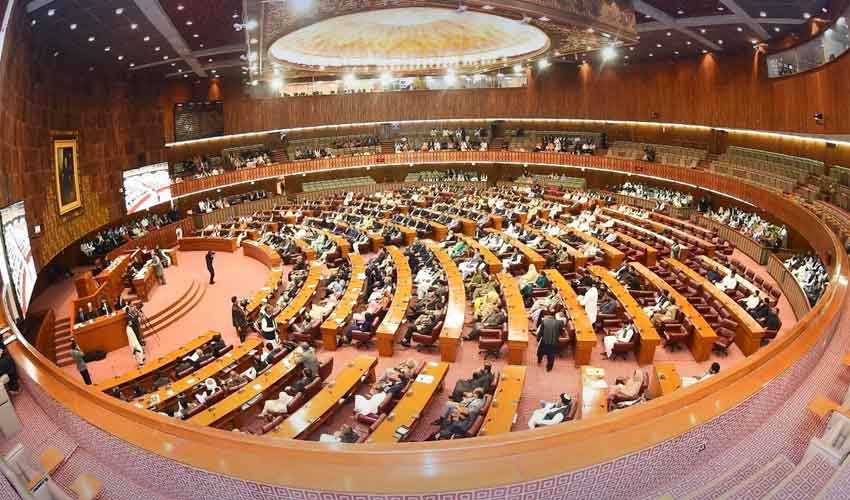Pakistan National Assembly Approves Extension of Armed Services Chiefs’ Tenure

Islamabad, The Gulf Observer: The National Assembly on Monday passed a series of significant legislative amendments extending the tenure of Pakistan’s armed services chiefs and increasing judicial capacities, despite fierce protests from opposition members. These moves aim to standardize military leadership tenures and enhance the efficiency of Pakistan’s judiciary.
In a session marked by intense debate, Defence Minister Khawaja Asif presented amendments to the Pakistan Army, Navy, and Air Force Acts, extending the service period of each branch’s chief from three to five years. The amendments, approved by a majority vote, align the service duration for the Chief of Army Staff and heads of the Navy and Air Force, creating a standardized tenure across all branches.
Additionally, Law Minister Azam Nazeer Tarar introduced measures to increase judicial capacity in both the Supreme Court and Islamabad High Court. The Supreme Court Practice and Procedure Ordinance, presented for parliamentary approval, proposes an increase in the number of Supreme Court judges from 17 to 34 to address the extensive backlog of pending cases. The Assembly also approved the Islamabad High Court Amendment Bill 2024, raising the number of judges from nine to twelve.
“These amendments address urgent institutional demands,” Law Minister Tarar noted in his briefing to the Assembly, “by expanding judicial capacity and ensuring continuity in military leadership, both of which are essential to the stability and functionality of our democratic institutions.”
The judicial reforms include new provisions to enhance transparency and expedite case hearings. Under the amendments, decisions made by constitutional benches under Article 184(3) will now be eligible for appeal to a larger bench within 30 days. A new first-in, first-out hearing rule was introduced, along with mandatory recordings of all Supreme Court proceedings, which will be made available to the public at a nominal fee.
Despite the bills’ passage, the National Assembly session faced significant disruption. Opposition members voiced strong objections, surrounding the Speaker’s dais, chanting slogans, and tearing copies of the bills in protest. Some altercations broke out between members, underscoring the contentious nature of these reforms.
The government has framed these legislative changes as essential steps in addressing Pakistan’s growing backlog of legal cases and ensuring a cohesive tenure for military leadership. However, opposition members argue that these moves lack transparency and undermine democratic principles.
These amendments reflect the government’s commitment to reforming the judiciary and standardizing the military’s leadership structure, aiming to foster continuity, transparency, and institutional stability across the nation.


